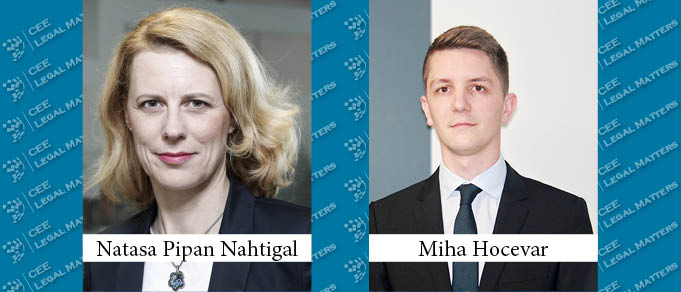In addition to the effect of the newly introduced FDI rules, the upcoming post-epidemic period in Slovenia will see extensive efforts to revive the economy. On May 29, 2020, Slovenia’s Parliament adopted the Intervention Act to Remove Obstacles to the Implementation of Significant Investments to Start the Economy After the COVID-19 Epidemic to restart economic activity and growth in key investment sectors.
Pursuant to the act, all significant investments will be deemed to be for the public benefit and must be addressed by the competent authorities as a matter of priority. This applies regardless of the source of an investment’s financing – whether it comes from public sources, private funds, or a combination of the two. The act sets out criteria for determining what is a significant investment and contains measures designed to speed up the coordination and operation of public authorities in procedures for obtaining certain permits, opinions, approvals, and decisions under sectoral laws (collectively, “Rulings”), as well as other measures designed to remove obstacles to significant investments, including the creation of a special group (the “Coordination Group”) within the Ministry of the Environment and Spatial Planning that will coordinate procedures for obtaining Rulings related to significant investments.
On the basis of the act, the Slovenian Government compiled an initial list (which can be amended until December 31, 2021) of 187 future investments across the environment, energy, transport and regional development fields that are considered to be significant, with an aggregate value of EUR 7.7 billion. Some of these projects are small, and clearly and narrowly defined (such as a school redevelopment project), while others are larger and broader (such as the construction of a new nuclear power plant, construction of several motorway and railway sectors, construction of several residential community complexes, etc.). Some projects will likely need merger control approval by the Slovenian Competition Protection Agency (the “Agency”), as they either include the establishment of joint ventures or result in a change of control.
The act foresees that the Coordination Group will not make any Rulings itself nor opine on the Rulings, but rather only coordinate the competent administrative authorities, who will in turn make the actual Rulings. It is unclear how this “coordination of procedures” will work, as the general principles of legality and the autonomy of administrative authorities limit interference in administrative proceedings. Moreover, specific provisions grant some public authorities, such as the Agency, an even higher degree of independence and protection from ministerial interference.
The Agency is an independent administrative authority responsible for enforcing antitrust and merger control rules. Its autonomy is essential to its effective operation and is therefore guaranteed by law. Moreover, the Agency’s predecessor (the Competition Protection Office) was affiliated with the Ministry of Economy and its lack of organizational independence cast doubt on its impartiality, particularly in proceedings involving the State. During Slovenia’s accession to the EU and the OECD, it became clear that more effective protection of competition was required. Specifically, the OECD emphasized the need for appropriate changes concerning matters around funding and prioritizing between cases and decisions in specific cases. Consequently, the Agency was established in 2012 as a more autonomous and independent regulator. Under the amended legal framework, only the Government and the Parliament may give general guidance to the Agency regarding its work and operations, suggesting that a ministry may not do so. Moreover, the explanation of the 2012 draft legislation explicitly stipulated that a ministry will not be allowed to give guidance to the Agency.
The applicable competition legislation therefore prohibits the Coordination Group (as part of a ministry) from offering any instructions or guidance to the Agency, no matter how general or abstract they might be and regardless of their purpose. Any such interference with the Agency’s work could be considered an interference with its independence, as well as a breach of Slovenia’s pre-accession commitments to the EU and OECD. On the other hand, the scope of the Coordination Group’s activities appears to include a degree of control over certain activities of the Agency – for instance in prioritizing of cases. The apparent incompatibility of these legislative provisions may prove difficult to resolve in practice. If the situation is not remedied, the confusion could delay – rather than accelerate – those significant investment projects that involve merger control procedures.
By Natasa Pipan Nahtigal, Partner, and Miha Hocevar, Associate, Selih & Partnerji
This Article was originally published in Issue 7.8 of the CEE Legal Matters Magazine. If you would like to receive a hard copy of the magazine, you can subscribe here.

















